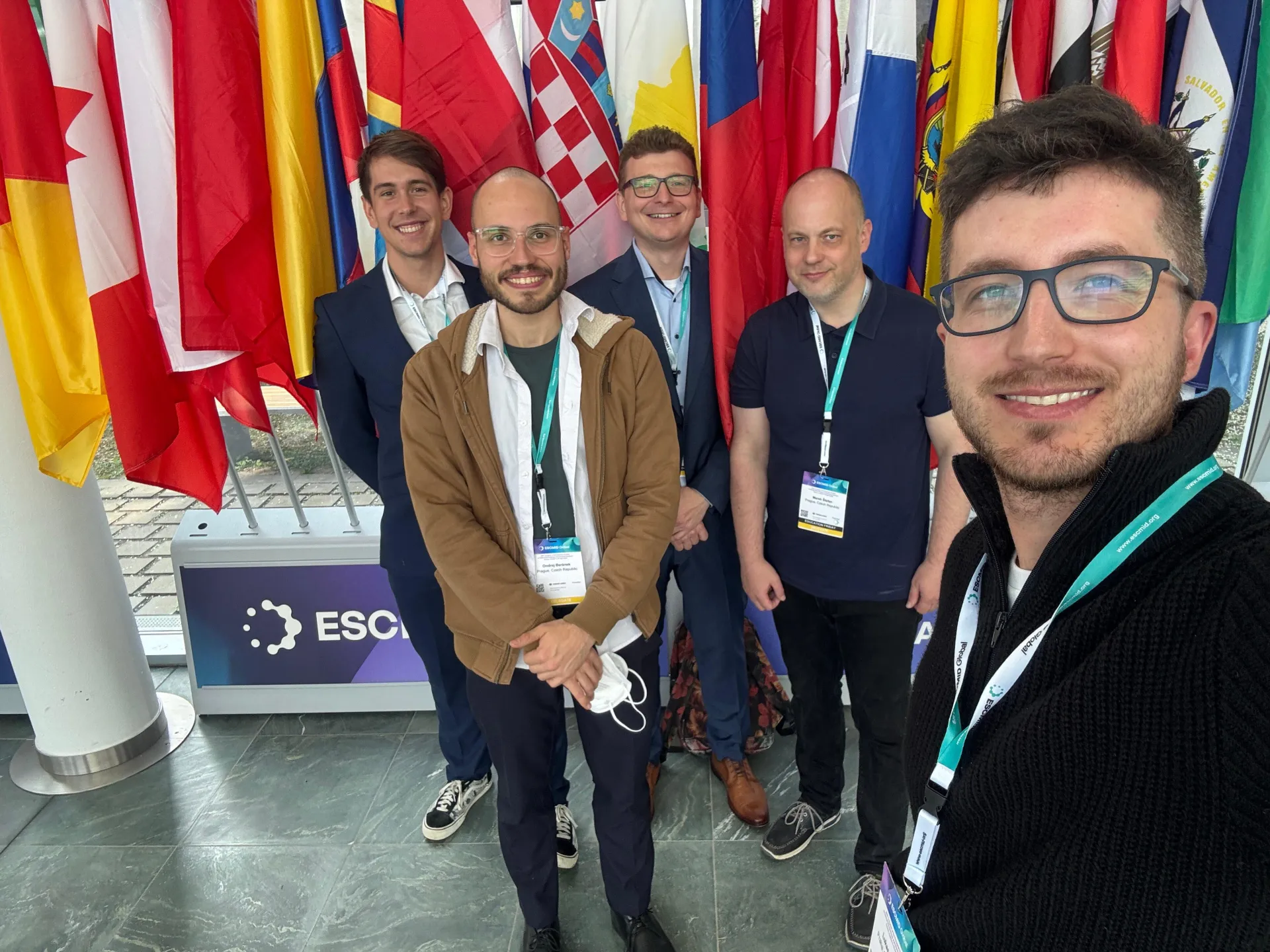At this year’s European Congress of Clinical Microbiology and Infectious Diseases (ESCMID Global), held from 11–15 April 2025 in Vienna, microbiologists from the Department of Medical Microbiology, Second Faculty of Medicine, Charles University and Motol University Hospital, led by Pavel Dřevínek, and infectious disease specialists from the Department of Infectious Diseases and Travel Medicine, led by Milan Trojánek, made a significant impact on the scientific programme.
Staff and students from both departments presented a number of important scientific and clinical findings, contributing to the advancement of diagnostics, treatment, and prevention of infectious diseases not only in the Czech Republic but also in the broader international context.
In the oral presentation, Milan Trojánek shared the results of two studies: Diagnostic utility of MxA and MxA/CRP ratio in differentiating viral and bacterial infections: a prospective cohort study and Travel-associated infections and diseases: a retrospective cross-sectional study. Jakub Hurych presented findings from the study Longitudinal observation of Blastocystis sp. and Dientamoeba fragilis in children: a very rare occurrence in chronic diseases with gut dysbiosis.
In the poster sections, results from a total of 16 studies were showcased:
- Traveller profiles and pre-travel counselling: a retrospective cross-sectional study (M. Trojánek).
- It's RIME time: mucocutaneous complications amidst the recent rise in incidence of Mycoplasma pneumoniae (M. Vidlička).
- Eosinophilia and multiple liver lesions following travel to Vietnam: a diagnostic challenge (M. Vidlička)
- Q-fever as a surprising cause of a doxycycline-deficiency syndrome (L. Kohout)
- Is there a difference between invasive and non-invasive Streptococcus pyogenes isolates? (M. Štefan)
- Severe invasive Streptococcus pyogenes infections in children and adults: are they the same? (M. Štefan)
- Long-read or short-read sequencing in Clostridioides difficile infection surveillance? (M. Brajerová, flash e-poster)
- Do we still have treatment options for infections caused by carbapenemase-producing Enterobacterales? (A. Gryndlerová)
- Can heme-dependent metronidazole resistance in currently circulating Clostridioides difficile isolates be reliably detected? (J. Zíková)
- Travelling increases the diversity of extended-spectrum β-lactamases carrying Enterobacterales and plasmids in the Czech Republic (S. Prasad)
- Can be antimicrobial resistance predicted from metagenomic data of culture-negative 16S rDNA-positive synovial fluid samples? (J. Kantor)
- Evaluation of a shotgun metagenomic NGS workflow for microbial pathogen detection from complex clinical samples using a host DNA depletion (J. Kantor)
- Gut virome composition modifies the risk of subsequent coeliac disease in two European birth cohorts (O. Cinek)
- Prevalence and molecular typing of the parasite Dientamoeba fragilis in patients from two hospitals in the Czech Republic (J. Havlová)
- Molecular epidemiology of methicillin susceptible Staphylococcus aureus in the Czech Republic: prospective multicentre study (J. Tkadlec)
- Molecular epidemiology of methicillin-resistant Staphylococcus aureus in central, eastern, and south-eastern Europe: systematic review (J. Tkadlec)
The conference program also included a symposium organised by the Czech Society for Medical Microbiology (SLM) titled “Chronic infections in the era of CFTR modulators: what is going on in cystic fibrosis lungs these days”, moderated by Pavel Dřevínek.
Marcela Krůtová was appointed as the ESCMID Local Champion for the Czech Republic for a three-year term.
Text by Dr Marcela Krůtová

